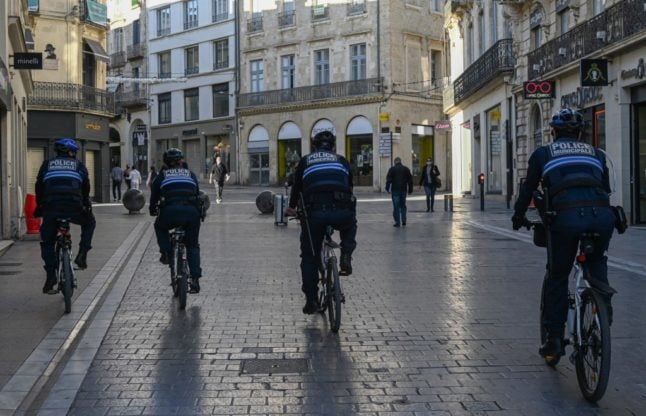The curfew came into force across the country on Saturday, January 16th and remains in place until further notice.
It was initially 6pm to 6am, but on Saturday, March 20th it was pushed back by one hour to 7pm to 6am.
In general people should not be out of their homes at all between those and any trip out of the house during those hours will require an attestation (permission form) listing your reason for being out. The areas of France on ‘lockdown light’ revert to curfew rules after 7pm.
You can find the “exemption form” HERE and it is also available on the TousAntiCovid app.
People caught outside without a form, or people outside for any other than the permitted reasons, face a fine.
The fine is €135 for the first offence, €200 for a second offence and rising to a maximum of €3,750 and a six month jail term for three offences within 30 days.
There are 8 accepted reasons for being outside the home after 7pm
- Work, teaching and training – travel between home and work or place of education.
- Doctors’ appointments and treatments – travel to the doctors of for treatment “which cannot be done remotely”.
- Urgent family reasons such as caring for a vulnerable or infirm relative or for childcare (family visits are not included in this category)
- Disabilities – Travel for those with disabilities or their carers
- Service of “general interest” – travel for services of general interest at the request of the authorities.
- Transport (for example journeys by train or plane – you will need to show a ticket as a reason to break curfew)
- To answer an official legal summons or take part in an official administrative process
- Walking the dog within a maximum radius of one kilometre from home.
Victims of domestic violence can also leave their homes if they don’t feel safe. There is also a hotline – 3919 – that people can call for help, in addition to the police emergency number 17.
Some clarifications have been issued:
- Shops and businesses open to the public must close by 7pm, but other people are permitted to work later or travel home from work later.
- Collecting children from school or crèche after 7pm is allowed
- Having a delivery to your home is allowed (so you can order takeaway for dinner but you cannot go out to collect your order).
- Public transport continues to run after 7pm, although some services have been scaled back



 Please whitelist us to continue reading.
Please whitelist us to continue reading.
I must be thick if I needed that explained 🙂
So for “travel between home and work or place of education.”, how is it that you can prove that you’re going home from work? For the “transport” reason you need to show a ticket, but for this you just show your navigo or what? My work has already said “Nous n’avons pas besoin d’attestation spécifique pour les déplacements professionnels”, so it’s up to you to prove you’re on your way home in the unlikely event that you actually get stopped?
So I will be visiting my son in the Rhone valley next week, an 8 hour drive. When I return do I have to leave so as to be home by 7pm curfew or so long as I don’t get out of the car after 7pm can I arrive back home later under the “transport” exception? Will I need to fill out an attestation?